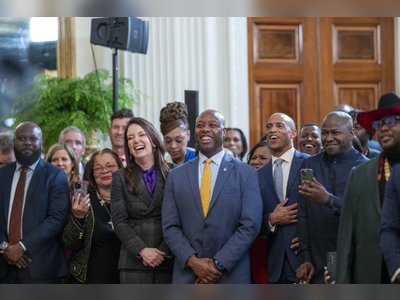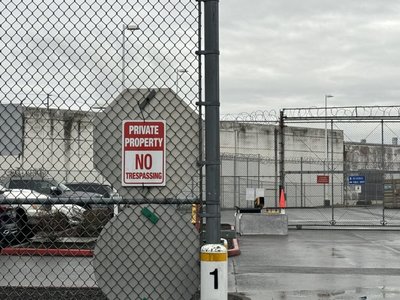Starmer's Strategic Stakes: Bold Vision or Political Theatre?
As Sir Keir Starmer unveils his 'plan for change,' can Labour's targeted goals outpace political skepticism and deliver real results?
Sir Keir Starmer's forthcoming speech, which is being framed as a 'plan for change,' arrives amidst whispers of an 'emergency relaunch.' The agenda, consisting of six key milestones—namely increased housebuilding, expedited National Health Service (NHS) operations, enhanced pre-school education, more sustainable energy, increased police presence, and reduced immigration—presents itself as a roadmap for a brighter future.
However, a closer examination reveals an omission of deeper systemic challenges and comprehensive strategies for the economy and immigration reform.
On the surface, the simplicity of these goals might be politically astute.
Labour appears to be drawing lessons from recent electoral outcomes, focusing on relatable, everyday concerns of the electorate rather than abstract economic metrics or global benchmarks.
Starmer is attempting to anchor his promises in tangible improvements that might resonate more with voters' daily experiences.
Yet, simplicity can be a double-edged sword.
By establishing specific targets, Labour risks equipping their adversaries with ready ammunition.
Failure to achieve any stated aim could invite sharp criticism from the Conservative party, eager to exploit any missteps.
The governing strategy of deploying mission boards and cross-department initiatives, though a common trope in political playbooks, rarely translates seamlessly into practice.
However, Starmer seems to be counting on crafting a narrative of accountability and rebuilding trust after years of voter disenchantment with broken promises.
Delivering these goals necessitates more than just rhetoric; it calls for a well-oiled governmental apparatus.
Starmer's well-documented dissatisfaction with Whitehall highlights the challenges involved.
Despite grand claims of revolutionizing efficiency through departmental reform and technological integration—like harnessing artificial intelligence—many such pledges have fallen short before.
Nevertheless, Labour's strategy appears to be pivoting towards the pragmatic and attainable, seeking to diminish the cacophony of political cynicism.
The promise hinges on a straightforward message: eschew grandiose ambitions in favor of addressing foundational issues.
The salient question remains whether this is a genuine roadmap to transformative change, or another meticulously calibrated campaign ploy.
Regardless, the stakes for Starmer are considerable.
These landmarks serve not simply as governmental promises, but as a critical barometer for the survival and credibility of his administration.
However, a closer examination reveals an omission of deeper systemic challenges and comprehensive strategies for the economy and immigration reform.
On the surface, the simplicity of these goals might be politically astute.
Labour appears to be drawing lessons from recent electoral outcomes, focusing on relatable, everyday concerns of the electorate rather than abstract economic metrics or global benchmarks.
Starmer is attempting to anchor his promises in tangible improvements that might resonate more with voters' daily experiences.
Yet, simplicity can be a double-edged sword.
By establishing specific targets, Labour risks equipping their adversaries with ready ammunition.
Failure to achieve any stated aim could invite sharp criticism from the Conservative party, eager to exploit any missteps.
The governing strategy of deploying mission boards and cross-department initiatives, though a common trope in political playbooks, rarely translates seamlessly into practice.
However, Starmer seems to be counting on crafting a narrative of accountability and rebuilding trust after years of voter disenchantment with broken promises.
Delivering these goals necessitates more than just rhetoric; it calls for a well-oiled governmental apparatus.
Starmer's well-documented dissatisfaction with Whitehall highlights the challenges involved.
Despite grand claims of revolutionizing efficiency through departmental reform and technological integration—like harnessing artificial intelligence—many such pledges have fallen short before.
Nevertheless, Labour's strategy appears to be pivoting towards the pragmatic and attainable, seeking to diminish the cacophony of political cynicism.
The promise hinges on a straightforward message: eschew grandiose ambitions in favor of addressing foundational issues.
The salient question remains whether this is a genuine roadmap to transformative change, or another meticulously calibrated campaign ploy.
Regardless, the stakes for Starmer are considerable.
These landmarks serve not simply as governmental promises, but as a critical barometer for the survival and credibility of his administration.












